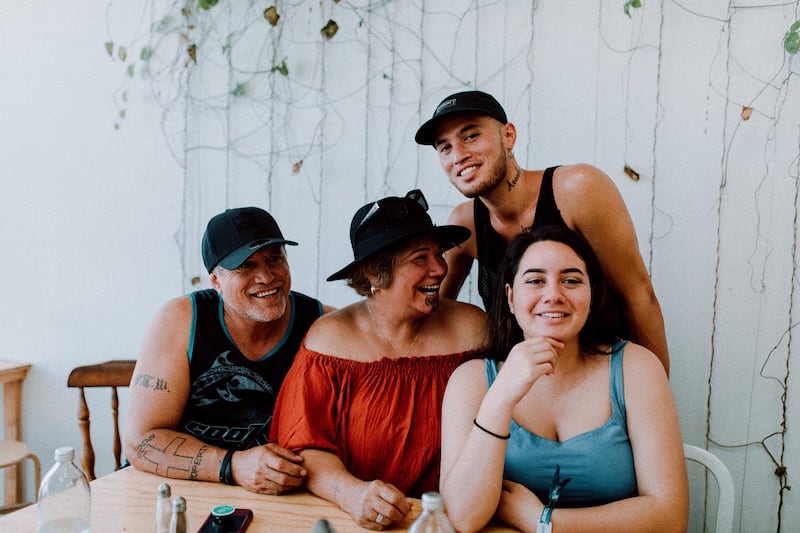Singer Stan Walker is calling for Māori whānau to be more open with one another about sensitive topics like violence and sexual abuse.
In his new book released today Impossible: My story, Stan talks about being a victim of domestic violence and abuse within his whānau and how family members overcame it.
"The hope for this is it's going to help other people like me who are going through the same things as me," Walker told Te Ao.
The book goes into detail about the horrific physical abuse Stan experienced from his father but also the journey in coming to forgive him.
“The hope is always that they get where I am coming from and that they can see that and that redemption, forgiveness, restoration, reconciliation is all possible because that is literally our family.”

Stan Walker with his father, mother and family member in Mount Maunganui, 2018 / Source: File
In the book, Stan also talks about being raped by a family member as a child and how it affected him growing up.
“I’m so open about it and so open in a way that it’s quite confronting because it needs to happen. For too long have our people just swept things under the carpet so I’m basically ripping that carpet up and saying here it is - let's deal with it.”
Stan says he kept his abuse a secret for several years.
“It’s like I had been in jail since I was a kid, locked up in a dark cell and the key was chucked away and it was like I was living with a constant claustrophobia and pain and lies and shame.”
However, he finally opened up about the abuse when he told his friends from church and next, his whānau.
“It was just like ‘boom’ and everything cracked open and it was like I saw light for the first time and honestly, it must be for a blind person who gets to see, or you see a deaf person who gets to hear for the first time. That’s what it felt like.”
Statistics provided by Te Puni Kōkiri in 2017 found 46% of children who had been physically abused were Māori and 37% of children who had been sexually abused were Māori.
“To any whānau, to families who are still part of that cycle and that intergenerational cycles that ugliness that is not actually our culture, we're better than that. We're so much more than that.”
He says he agrees that perpetrators deserve punishment, "but it’s so much deeper than that".
“We need to stop it there because I don’t want that handed down to the next generation. You’re not born a rapist, you’re not born an abuser and you’re not born with forgiveness.”
He also says there needs to be better education out there for tamariki.
“We need to teach them. We never got taught as kids. We never got talked to as kids. We got talked down to and it was always a shut up, shut your mouth or a hiding. I never got that education about how to be sexually safe.”
He hopes the book will help stop intergenerational abuse within whānau.
“Our job now in this day and age everybody needs to have these conversations with their kids, with their siblings, even with their parents so that the parents can know how to talk. A lot of our parents don’t know how to talk. They just shut down, so I guess this book is useful. If it can start a conversation in a whanau then that’s good.”
If you or someone you know needs support, contact:
IT'S NOT OKAY for family violence 0800 456 450
SAFE TO TALK for sexual abuse 0800044334


